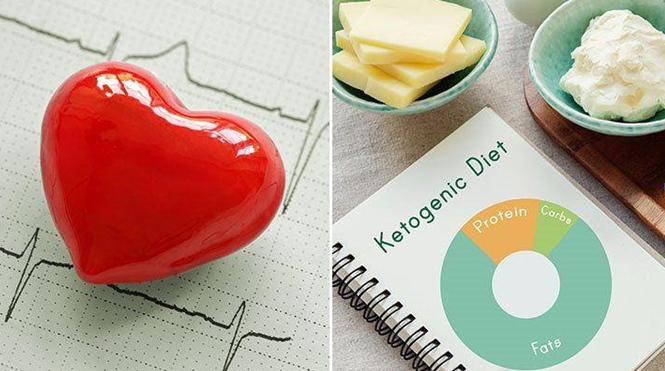Ketogenic Diet-A 7-day Menu Plan

People when planning their keto diet find difficult to figure out the right food for them to eat at the appropriate time. Planning your meal can help you get familiar with your diet and follow it religiously.
The keto diet has high fats which are about 60%, protein about 35% and carbohydrates are 15% of your total diet. Medical health experts believe that to stick to these ratios its vital for one to make a meal plan before starting a keto diet.
The following a 7-day keto plan. You can change it according to your liking but please make sure not to exceed the 50g carbohydrate daily mark.
Day 1
Breakfast: Scrambled eggs in butter on a bed of lettuce.
Snacks: stuffed mushrooms
Lunch: Spinach salad with grilled salmon.
Snacks: keto sushi roles(use nori seaweed).
Dinner: Cheesy zucchini casserole.
Day 2
Breakfast: Bulletproof coffee (made with butter and coconut oil), hard-boiled eggs
Snack: Macadamia nuts
Lunch: Snack Roast beef and sliced cheese roll-ups.
Snacks: Cesar salad skewers.
Dinner: Cheesy Brussels sprouts.
Day 3
Breakfast: cauliflower bread with crispy bacon, poached eggs, and avocado.
Snack: Olives
Lunch: Sashimi takeout with miso soup
Snack: macadamia nuts
Dinner: Meatballs on zucchini noodles, topped with cream sauce.
Day 4
Breakfast: Coconut Flour Crepes with bulletproof coffee stirred with extra butter.
Snacks: Bone broth stirred with some butter
Lunch: Smoked salmon and cream cheese roll-ups.
Snacks: Avocado egg salad wrapped in lettuce.
Dinner: keto fried chicken(Use spicy almond-Flour blend for dipping these chicken pieces)
Day 5
Breakfast: Buttery coconut flour waffles.
Snacks: Keto sushi rolls(Use nori seaweed sheets) and add cream cheese to increase the fat content.
Lunch: Ranch chicken bites.
Snacks: Saute cauliflower bites.
Dinner: Roasted chicken with asparagus and sautéed mushrooms
Day 6
Breakfast: Strawberry chocolate keto crepes with Green tea.
Snacks: Cajun-style shrimp and bell pepper kebabs.
Lunch: Grilled Salmon and a spinach salad.
Snacks: Snack Smoothie made with almond milk, greens, almond butter, and protein powder.
Dinner: Bunless burger(Try layering all the ingredients in a lettuce wraps ).
Day 7
Breakfast: Keto breakfast tacos with bacon and guacamole(tortillas are substituted with pasteurized eggs.
Snacks: Cesar Salad
Lunch: Tuna salad stuffed in tomatoes.
Snack: Celery and pepper strips dipped in guacamole
Dinner: Pork chop with cauliflower mash and red cabbage slaw.
Diabetes and the Ketogenic Diet

Whenever we eat carbs the glucose in our blood increases as it should, the body uses insulin to help bring glucose from the blood into cells for energy.
What is diabetes?
Diabetes especially type 2 is a condition when you develop insulin resistance and your muscle cells do not respond to insulin. In this, they have impaired insulin receptors, and this is often due to obesity, which is a major risk factor for type 2 diabetes. Studies have shown that there is a genetic predisposition as well for type 2 diabetes.
Type 1 diabetes is when you have insulin deficiency and it manifests in childhood while type 2 diabetes manifests in middle-aged and obese people.
How can I control my diabetes with a ketogenic diet?
In a diabetic person, insulin is not working so a high carb diet usually leads to a spike in blood glucose level which is termed as HbA1c as your body cannot use the carbs effectively.
Limiting the carbs is the idea that the keto diet revolves upon so by limiting the carbs you can certainly control your blood glucose/HbA1C levels therefore it can benefit people with pre-existing diabetes.
Obesity is a major risk factor for diabetes, with a strictly followed standard ketogenic diet you can end up losing excess weight so keto diet can help reduce the risk of diabetes in people who do not have it or in those who are susceptible to diabetes.
Ketogenic diet and its impact on medications for diabetes.?
We have till now learned that keto diet helps reduce blood sugar levels and due to this it can have some effects on medications for diabetes. People who have type 2 diabetes take insulin as medication, A ketogenic diet took on top of insulin can result in severe hypoglycemia which means low blood sugar.
Therefore, an expert opinion of your consultant should always be taken when considering going on a keto diet while on medications for diabetes.
The keto diet can lower blood pressure, improve insulin sensitivity, reduce dependency on medication, improves good cholesterol or HDL without adding to low-density lipoprotein (LDL) or bad cholesterol and drops blood insulin levels.
KETO DIET: What are the risks associated with it?

The diet which is in vogue these days, assures fast weight loss and ideal health, but do we think that there is no risk associated with it? The answer is certainly no. There are few risks, however the most common is the lower blood sugar due to weight loss.
Keto diet is a formula for weight-loss, is also controversial. Caregivers are of the view that it may have adverse side effects due to its untenable nature and admit that, if the diet is not followed the “the right way” it can be unhealthy.
Here are a few risks one should know before you plan to lose weight through a ketogenic diet. You should always know the complications before you lose some pounds.
Keto flu
Kristen Kizer, RD, a nutritionist at Houston Methodist Medical center reports that people feel lethargic, nauseated, gastrointestinal distress and fatigue when they start the keto diet. She added that this is the keto flu which fades away after some time.
You may overcome the symptoms of keto flu by drinking lots of water and having a sound sleep. Adding natural sources of energy in your diet such as green team, organic coffee may help you overcome this flu early.
Diarrhea
Keto diarrhea is experienced by everyone who has gone through the keto weight loss plan. This is caused due to the lack of fiber in a keto diet. Moreover, in keto, we cut down our carbs intake and don’t equip our diet with other fiber foods such as vegetables.
Ketoacidosis
If you are type1 or type 2 diabetic, then you should consult your doctor first when following a keto diet. Medical Health experts are of the view that ketosis can certainly be helpful for people who have hyperglycemia issues, but one must check his blood sugar and glucose levels several times a day.
The reason being is that diabetic patient ketosis can activate a condition known as ketoacidosis which causes the body to store many ketones and makes the blood acidic which results in the damage of the liver, brain, and kidney. This can be deadly if untreated.
Weight Regain
According to health experts, the restrictive nature of keto doesn’t support a long-term diet plan. Also, people tend to gain more weight as compared to that they have lost as soon as they switch back to carbs.
This type of weight fluctuations can cause acute eating disorders and can also worsen one’s health. Some people following keto need a professional lifestyle coach or a counselor more than a keto diet plan.
As they say, one man’s meat is another man’s poison. So, one must research, seek permission from a doctor or a dietitian to make sure that they are following a safe diet plan.
